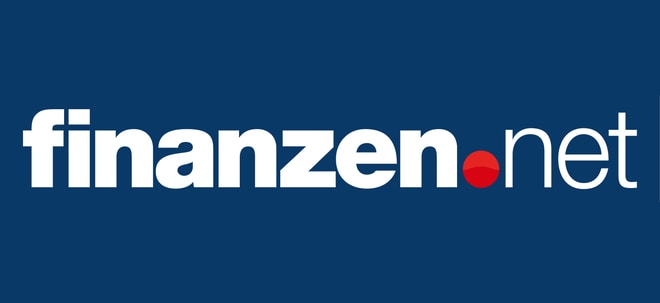Lung Cancer Surgery Market to Expand at 5.7% CAGR Through 2035
The lung cancer surgery market represents a critical segment within the broader oncology and surgical treatment industry. Lung cancer remains one of the most prevalent and deadly cancers worldwide, leading to a substantial demand for effective surgical interventions. Surgery is often a primary treatment approach, especially in early-stage lung cancer, aiming to remove tumors and improve patient survival rates. The market encompasses a wide array of surgical procedures, including lobectomy, pneumonectomy, segmentectomy, and wedge resection, tailored to patient-specific needs and tumor characteristics.
The global lung cancer surgery market is projected to reach USD 1.48 billion in 2025, and is expected to expand further to USD 2.64 billion by 2035 at a steady 5.7% CAGR.
Advancements in surgical techniques and technology have significantly influenced the lung cancer surgery market. Minimally invasive procedures, such as video-assisted thoracoscopic surgery (VATS) and robotic-assisted thoracic surgery, have gained traction due to their reduced recovery times and improved patient outcomes. Moreover, increasing awareness about early diagnosis and rising healthcare expenditure in developing economies contribute to the expanding lung cancer surgery market. Hospitals and specialized cancer treatment centers are investing in sophisticated surgical tools and training to meet growing patient needs.
Several notable trends are shaping the lung cancer surgery market. The rise of minimally invasive surgical methods is a prominent development. These techniques reduce hospital stays and postoperative complications, making surgery accessible to a wider patient base, including elderly and high-risk individuals. Robotic-assisted surgery, offering enhanced precision and visualization, is becoming increasingly popular among thoracic surgeons, further driving market growth.
Another trend is the integration of surgery with other treatment modalities, such as targeted therapy, immunotherapy, and chemotherapy, to provide a multidisciplinary approach. Personalized treatment plans that combine surgery with systemic therapies are improving overall survival and quality of life for lung cancer patients. Additionally, the focus on early detection through advanced imaging and screening programs is encouraging more surgical interventions at earlier disease stages, where surgery is most effective.
Healthcare providers and manufacturers are also exploring innovative surgical devices and instruments that enhance the efficiency and safety of lung cancer surgeries. For instance, improvements in endoscopic tools and energy devices allow surgeons to perform complex procedures with minimal tissue damage. The increasing adoption of digital health technologies and telemedicine is facilitating better preoperative and postoperative care, indirectly supporting the lung cancer surgery market.
Despite the promising growth prospects, the lung cancer surgery market faces several challenges. One significant barrier is the complexity of lung cancer cases. Many patients are diagnosed at advanced stages when surgery is no longer feasible, limiting the number of candidates for surgical intervention. Moreover, comorbidities and the overall health condition of patients often complicate surgical decisions.
The cost of advanced surgical equipment and procedures can also pose a financial challenge, especially in low- and middle-income regions. Accessibility to specialized surgical care remains uneven globally, with rural and underserved areas experiencing limited availability of thoracic surgery services. These factors collectively constrain the lung cancer surgery market’s potential in certain geographies.
However, these challenges open up opportunities for innovation and market expansion. Development of cost-effective surgical technologies and portable surgical units could bridge the accessibility gap. Increased investment in healthcare infrastructure and surgeon training programs in emerging markets will expand the reach of lung cancer surgery. Furthermore, the ongoing research in enhancing surgical outcomes through precision medicine and robotics offers new avenues for growth.
Collaborations between medical device manufacturers, healthcare providers, and research institutions can accelerate the introduction of cutting-edge solutions in the lung cancer surgery market. Public health initiatives aimed at raising awareness about lung cancer symptoms and early screening can also increase the number of patients eligible for surgery, expanding the market base.
The lung cancer surgery market exhibits distinct regional variations influenced by healthcare infrastructure, government policies, and socioeconomic factors. Developed regions benefit from advanced healthcare systems, widespread availability of sophisticated surgical equipment, and higher patient awareness. These factors contribute to a substantial share of the lung cancer surgery market. Moreover, robust reimbursement policies and investments in cancer care further stimulate market growth in these areas.
In contrast, emerging regions are witnessing gradual growth driven by increasing healthcare expenditure and rising incidence of lung cancer. Expanding healthcare access and government initiatives to improve cancer diagnosis and treatment are significant drivers in these markets. However, challenges such as limited availability of trained thoracic surgeons and high procedural costs still exist.
Asia-Pacific stands out as a region with significant potential due to the large patient population and increasing adoption of advanced surgical technologies. Rapid urbanization and growing awareness about cancer treatment options contribute to the expanding lung cancer surgery market here. Europe and North America continue to lead in technology adoption and clinical research activities, further strengthening their market position.
The lung cancer surgery market is characterized by intense competition among a diverse set of players, including medical device manufacturers, healthcare providers, and technology developers. Companies continuously strive to innovate surgical tools and technologies to enhance patient outcomes and gain a competitive edge. The market’s dynamic nature drives ongoing investments in research and development to introduce minimally invasive and robotic-assisted surgical solutions.
Partnerships and collaborations play a pivotal role in maintaining competitiveness. Alliances between surgical device companies and healthcare institutions facilitate clinical trials and validation of new technologies, fostering faster market penetration. Additionally, mergers and acquisitions are common strategies to expand product portfolios and geographic presence.
The growing emphasis on digital surgery and AI-powered tools is reshaping competition by enabling more precise and efficient lung cancer surgeries. Companies investing in these advanced solutions position themselves favorably in the lung cancer surgery market, responding to the evolving demands of surgeons and patients.
Leading companies in the lung cancer surgery market include global medical technology firms known for their innovative surgical instruments and robotic systems. These companies invest heavily in developing state-of-the-art products that cater specifically to thoracic oncology surgeries. They focus on improving the ergonomics, precision, and safety features of their surgical platforms.
Key players also emphasize expanding their global footprint by entering emerging markets and collaborating with regional distributors. Customer support, surgeon training programs, and clinical education form part of their comprehensive approach to sustain market leadership. Additionally, these companies actively participate in clinical research to demonstrate the efficacy of their surgical solutions, thereby building trust among healthcare providers.
Some of the top companies are also exploring opportunities in digital health, combining data analytics with surgical platforms to improve decision-making and patient outcomes. Their strategic initiatives aim to create integrated solutions that address the entire lung cancer treatment continuum, not just the surgical component.
The lung cancer surgery market segmentation is typically based on procedure types, surgical approaches, end-users, and geography. Procedure types include common surgeries like lobectomy and pneumonectomy, each serving different clinical needs depending on tumor size and location. Segmentectomy and wedge resection represent lung-sparing surgeries suitable for smaller tumors or patients with limited lung function.
Surgical approach segmentation highlights the growing preference for minimally invasive techniques such as video-assisted thoracoscopic surgery and robotic-assisted thoracic surgery. These approaches offer advantages like smaller incisions, less pain, and faster recovery, influencing surgeon and patient choice. Traditional open thoracotomy remains relevant, especially in complex cases.
End-user segmentation covers hospitals, cancer specialty clinics, and ambulatory surgical centers. Hospitals with comprehensive oncology departments dominate the market due to their ability to manage complex lung cancer cases requiring surgery. Specialty clinics and outpatient centers are increasingly adopting minimally invasive procedures, contributing to market growth.
Geographically, segmentation divides the market into regions such as North America, Europe, Asia-Pacific, Latin America, and the Middle East & Africa. This segmentation helps identify regional growth opportunities and tailor marketing and sales strategies accordingly.
Future Market Insights, Inc. (ESOMAR certified, recipient of the Stevie Award, and a member of the Greater New York Chamber of Commerce) offers profound insights into the driving factors that are boosting demand in the market. FMI stands as the leading global provider of market intelligence, advisory services, consulting, and events for the Packaging, Food and Beverage, Consumer Technology, Healthcare, Industrial, and Chemicals markets. With a vast team of over 400 analystsworldwide, FMI provides global, regional, and local expertise on diverse domains and industry trends across more than 110 countries.
Future Market Insights Inc.
Christiana Corporate, 200 Continental Drive,
Suite 401, Newark, Delaware – 19713, USA
T: +1-347-918-3531
[email protected]
Website: https://www.futuremarketinsights.com
LinkedIn| Twitter| Blogs | YouTube












